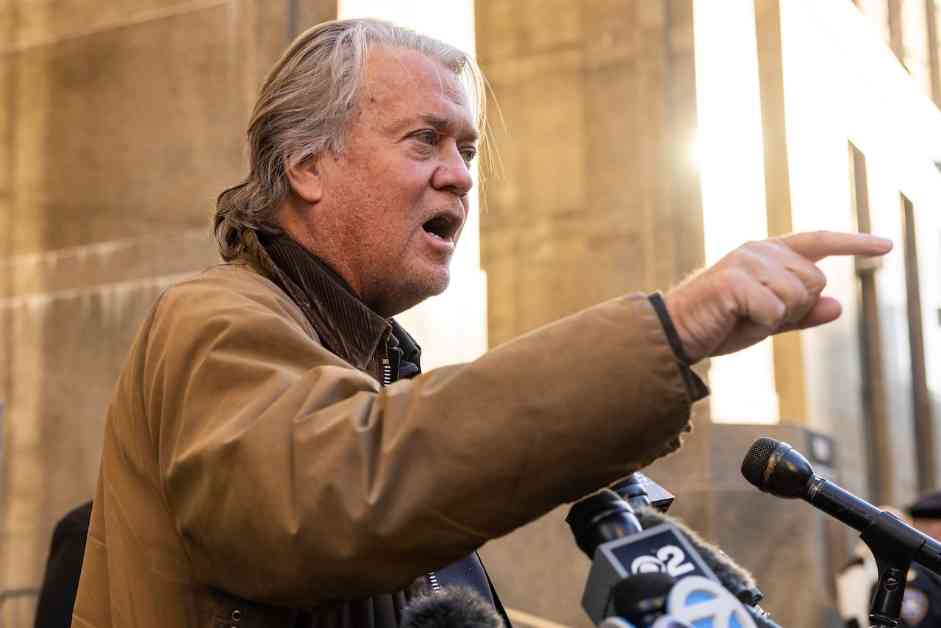In a recent interview, former Trump advisor Steve Bannon issued a warning to fellow MAGA Republicans, cautioning them against putting their trust in “oligarchs” like tech billionaire Elon Musk. Bannon, known for his outspoken views, expressed skepticism about Musk’s support for the Make America Great Again movement, labeling him as a “parasitic illegal immigrant.” While acknowledging Musk’s contributions in certain areas, Bannon emphasized his belief that the tech mogul does not truly align with the values of MAGA.
Questioning the Loyalty of Tech Billionaires
During his interview with CNN, Bannon did not mince words when discussing Musk and other prominent tech figures like Meta CEO Mark Zuckerberg and Amazon founder Jeff Bezos. He raised concerns about their allegiance to the Republican Party, suggesting that these “oligarchs” prioritize their own interests over those of the MAGA movement. Bannon’s remarks shed light on the complex dynamics between powerful tech figures and the political landscape, highlighting the potential for conflicting agendas and allegiances.
Insights into Trump’s Relationship with Oligarchs
Bannon’s comments also offered a glimpse into former President Trump’s views on the influence of oligarchs within his administration. By asserting that Trump harbors reservations about these wealthy individuals, Bannon hinted at a broader strategy to address concerns about concentrated power and potential disloyalty. The mention of antitrust measures being implemented by the Justice Department underscores the administration’s efforts to curb the influence of oligarchs and safeguard the interests of the Republican Party.
Throughout the interview, Bannon conveyed a sense of urgency and caution, warning that the loyalty of oligarchs like Musk may shift over time. He painted a picture of a political landscape fraught with uncertainty and competing interests, where alliances are subject to change based on perceived benefits and strategic calculations. The underlying message was clear: trust in the MAGA movement must be tempered with vigilance and a critical eye towards those who may not have its best interests at heart.
As a former insider in the Trump administration, Bannon’s insights carry weight and offer a unique perspective on the intersection of politics and big business. His candid assessment of Musk and other tech billionaires adds a layer of complexity to the ongoing dialogue surrounding the future direction of the Republican Party and its relationship with powerful industry titans. By shining a spotlight on these dynamics, Bannon invites reflection on the nature of political allegiances and the potential pitfalls of aligning too closely with influential figures whose loyalties may lie elsewhere.
In conclusion, Bannon’s warning serves as a reminder of the delicate balance between political ideology and vested interests in a landscape where power and influence often intersect. As the debate over the role of oligarchs in shaping political outcomes continues to evolve, his words offer a cautionary tale about the complexities of navigating a world where loyalties can shift in unexpected ways. By heeding his advice and remaining vigilant against potential threats to the integrity of the MAGA movement, Republicans can chart a course that is true to their values and free from undue outside influence.

